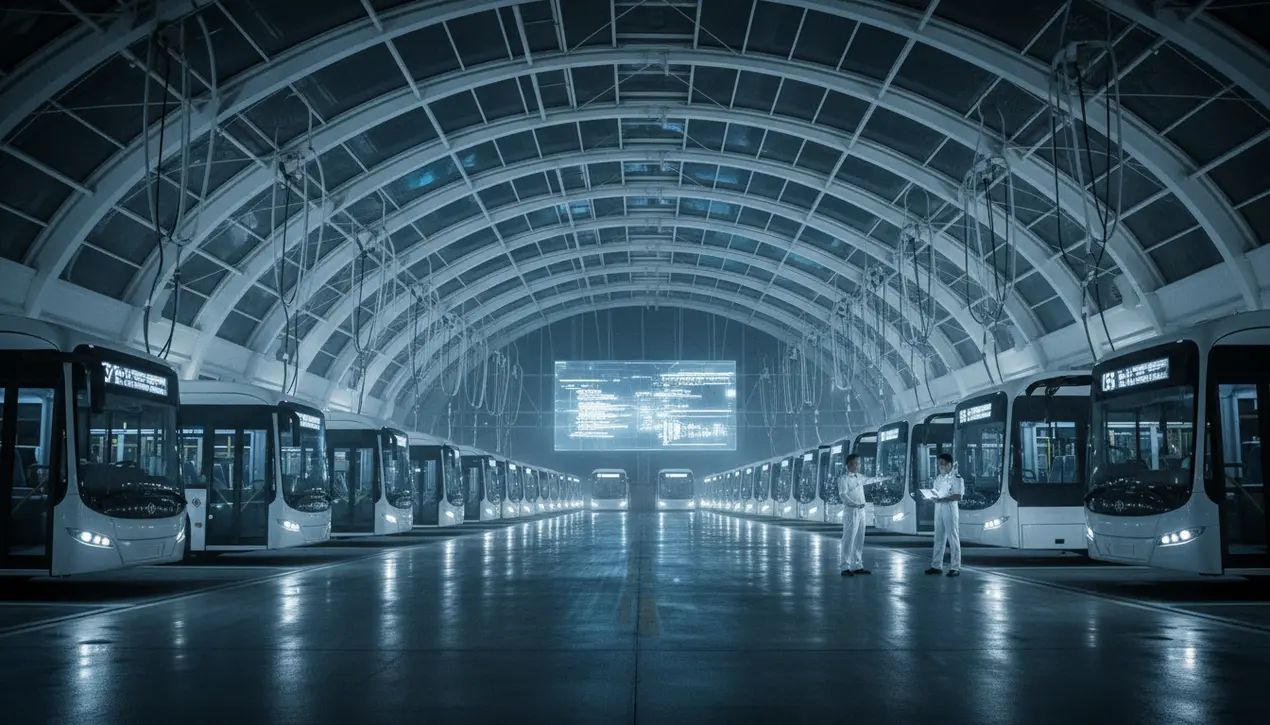
Othertransport & aviationElectric Mobility
Singapore denies Chinese electric buses have remote control tech.
OL
Oliver Scott
3 hours ago7 min read
In a firm rebuttal to emerging cybersecurity anxieties, Singapore’s Land Transport Authority has categorically denied that its fleet of twenty electric buses supplied by China’s Yutong Group possess any remote control capabilities, a statement issued on Monday aiming to quell fears that the vehicles could be manipulated or disabled from afar. This official clarification from the LTA was precipitated by a disquieting discovery halfway across the globe, where Norway’s public transport operator, Ruter, uncovered that Yutong retained a level of access to the buses' core control systems, ostensibly for routine software updates and diagnostic telemetry.The inherent risk, as flagged by European security analysts, is that such a digital backdoor—a standard feature in modern connected vehicles for maintenance efficiency—could theoretically be weaponized or exploited by malicious state or non-state actors to immobilize public transit, creating gridlock and societal disruption. This incident is not occurring in a vacuum; it sits at the combustible intersection of escalating global tech hegemony tensions and the urgent, worldwide pivot towards green transportation.Nations are aggressively electrifying their public transit to meet climate targets, yet this very transition creates a new vector of vulnerability, making municipal infrastructure dependent on the hardware and software of a handful of international manufacturers, many of whom are subject to the legal and political dictates of their home governments. The scenario evokes historical precedents where critical infrastructure became a pawn in geopolitical standoffs, though now the battlefield is digital and the weapons are lines of code.For Singapore, a nation-state whose entire existence is predicated on flawless operational security and meticulous risk management, the potential for a foreign entity to exert latent control over a public utility represents a profound strategic dilemma. The LTA’s swift denial is a classic risk-mitigation move, aimed at maintaining public confidence and preempting market panic, but it does little to address the underlying systemic vulnerability.Cybersecurity experts are now debating whether this is a one-off oversight or a symptom of a broader pattern, questioning if the procurement processes for national infrastructure adequately weigh software sovereignty and supply-chain security against cost and efficiency. The consequences of inaction are stark: imagine a coordinated cyber-attack disabling a city's entire bus network during a peak hour, a non-kinetic act with kinetic consequences, paralyzing commerce and creating public unrest.This Yutong episode, therefore, is more than a minor diplomatic spat; it is a stark stress test for the globalized supply chain of critical infrastructure. It forces governments to conduct urgent threat assessments, potentially leading to a balkanization of tech standards or the imposition of stringent 'black box' requirements where core control systems are sealed from manufacturer access post-delivery. The ultimate insight is that the road to a sustainable future is paved with new and complex risks, and the nations that will thrive are those that master not just the engineering of electric vehicles, but the geopolitics of their microchips.
#featured
#Singapore
#Yutong
#electric buses
#cybersecurity
#remote control
#public transport
#Land Transport Authority
Stay Informed. Act Smarter.
Get weekly highlights, major headlines, and expert insights — then put your knowledge to work in our live prediction markets.
Comments
Loading comments...
© 2025 Outpoll Service LTD. All rights reserved.